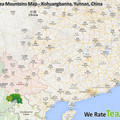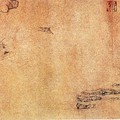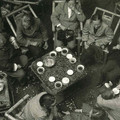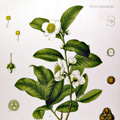Quotes - Sheng - Raw Puerh
„sheng; 生 - Raw, uncooked, un-processed. Here used to refer to Puer tea that is made from maocha that does not undergo further processing, other than steaming and pressing where it is made into cake, brick, etc. form.“
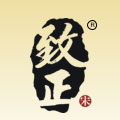
Quotes Tags: Sheng - Raw Puerh, Pu-erh, China
„ku se; 苦涩 - Bitter and astringent. The nature of new raw Puer is a little astringent and bitter, followed by a sweet aftertaste. However, a bitterness with no sweet aftertaste is not typical of Puer and an astringency which is not comfortable would not be considered good tea. “

Quotes Tags: Sheng - Raw Puerh, Pu-erh, China, Experiencing tea
„gan cang; 干藏 - dry storage. Referring to tea storage that tends to be dry rather than excessively humid. Storing raw Puer in an excessively dry climate will have a harmful effect on the tea.“

Quotes Tags: Sheng - Raw Puerh, Pu-erh, China, Experiencing tea
„fa jiao; 发酵 - To ferment/fermented. Shu Puer tea is a made by a process of fermentation. Raw puer is referred to as hou fa jiao cha - post-fermented tea -which technically is said to be a mix of oxidation and fermentation.“

Quotes Tags: Sheng - Raw Puerh, Pu-erh, Tea production, China
„cha hu; 茶壶 - Tea pot. Made of porcelain, pottery or glass. Yixing pots are used for both cooked and raw Puer. Since they are pourous, the pots absorb flavours and chemicals from the tea. If one is serious about using Yixing pots, particularly for sheng Puer, one needs to be ready to get at least two pots - one for older and one for younger teas. And these should not be used for brewing other teas, and vice-versa. Yixing teapots will typically soften the flavours of sheng Puer.“

Quotes Tags: Sheng - Raw Puerh, Shu - Ripe Puerh, Tea infusion, China
„‘Ripened’ Shou Cha (熟茶) tea is pressed maocha that has been specially processed to imitate aged "raw" Sheng Cha tea. Although it is also known as cooked pu-erh, the process does not actually employ cooking to imitate the aging process. The term may come about due to inaccurate translation due to the dual meaning of shú (熟) as both "fully cooked" and "fully ripened".“
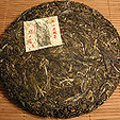
Quotes Tags: Pu-erh, Sheng - Raw Puerh, Shu - Ripe Puerh, Maocha
„Once dry, maocha can be sent directly to the factory to be pressed into raw pu'er, or to undergo further processing to make ripened pu'er. Sometimes Mao Cha is sold directly as loose-leaf "raw" Sheng Cha or it can be matured for 2–3 years in loose leaf form due to the faster rate of natural fermentation in an uncompressed state. This product is then pressed into numerous shapes and sold as "raw" Sheng Cha as a more matured final product.“

Quotes Tags: Pu-erh, Sheng - Raw Puerh, Maocha
„After picking appropriate tender leaves, the first step in making raw or ripened pu'er is an optional wilting/withering stage, thus converting the leaf to maocha.“

Quotes Tags: Pu-erh, Sheng - Raw Puerh, Shu - Ripe Puerh, Maocha
„Pu-erh is typically made through the following steps:
1. green/raw 青普: sun fixation 曬青 > rolling 揉捻 > sun drying 曬乾:
2. dark/ripe 熟普: sun fixation 曬青 > rolling 揉捻 > Wo Dui (piling) 渥堆 > sun drying 曬乾:
3. added processes: green and dark pu'er can be compressed/shaped into cakes and aged.“

Quotes Tags: Pu-erh, Sheng - Raw Puerh, Shu - Ripe Puerh, Tea production
„Ripened or aged raw pu-erh has occasionally been mistakenly categorised as a subcategory of black tea due to the dark red colour of its leaves and liquor. However, pu-erh in both its ripened and aged forms has undergone secondary oxidization and fermentation caused both by organisms growing in the tea and free-radical oxidation, thus making it a unique type of tea. This divergence in production style not only makes the flavour and texture of pu-erh tea different but also results in a rather different chemical makeup to resulting brewed liquor.“

Quotes Tags: Pu-erh, Tea oxidation, Sheng - Raw Puerh, Shu - Ripe Puerh
„Maocha can be sold directly to market as loose leaf tea, compressed to produce "raw" Sheng Cha, naturally aged and matured for several year before being compressed to also produce "raw" Sheng Cha or undergo Wo Dui ripening for several months prior to being compressed to produce "ripe" Shou Cha.“

Quotes Tags: Pu-erh, Sheng - Raw Puerh, Shu - Ripe Puerh, Maocha
„Pu-erh tea processing, although straightforward, is complicated by the fact that the tea itself falls into two distinct categories: the "raw" Sheng Cha and the "ripe" Shou Cha. All types of pu-erh tea are created from máochá (毛茶), a mostly unoxidized green tea processed from a "large leaf" variety of Camellia sinensis (C. sinensis assamica) found in the mountains of southern Yunnan.“

Quotes Tags: Pu-erh, Tea oxidation, Yunnan, Sheng - Raw Puerh, Shu - Ripe Puerh
„In recent decades, demand has come full circle and it has become more common again for Hei Cha, including Pu-erh, to be sold as the raw product without the artificial accelerated fermentation process.“

Quotes Tags: Pu-erh, Sheng - Raw Puerh
„Pu'er traditionally begins as a raw product known as "rough" Mao Cha (毛茶) and can be sold in this form or pressed into a number of shapes and sold as "raw" Sheng Cha (生茶). Both of these forms then undergo the complex process of gradual fermentation and maturation with time.“

Quotes Tags: Pu-erh, Sheng - Raw Puerh, Maocha
Teas
2003 CNNP "Yi Wu Old Tree Round Cake" Raw
 1 review
1 reviewProbably a small tea factory in Yi Wu area pressed this cake under the "zhong cha" label in 2003. Entirely...
Shu 7581 - 2002
 1 review
1 review„tailor-made” private production “Zhong Cha Gong Si” This tea was stored for the whole time in...
2013 Wuliang Wild Hongcha
 2 reviews
2 reviewsThis tea is collected from ancient, wild trees on Wuliang mountain. These are truely wild trees, that...
Theme
Tea by region
We will help you with tea selection.
Do you like quality loose tea?
We will help you to find the right one for you. Be inspired by tea ratings of other tea lovers. Rating stars could help you.


Review your cup of tea.
Review the tea you are drinking and help other tea lovers to find the right cup of tea.



Quotes
„Pang xie jiao; 旁鞋脚. Latin; (Viscum articulatum Burm.f.) Literally Crabs legs. A parasitic plant that grows on trees in sub-tropical regions. When it grows on the tea tree it absorbs flavour from the tree and makes a sweet, refreshing drink, hot or cool. Very limited availability. Puer cakes can be found that have Pangxiejiao mixed into the cake. Normally around 10-15%. It is also part of the Chinese medicine pharmacopoeia – said to have a diuretic effect and is used to clear heat“



 Shops
Shops Share on Facebook
Share on Facebook






